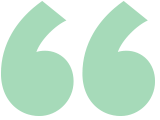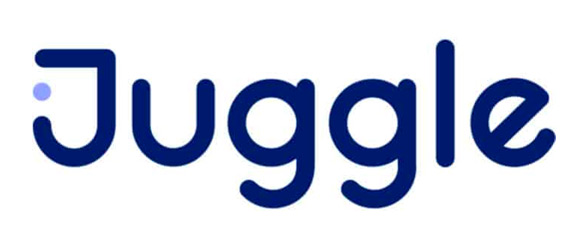People are on the move. Professional employees are in high demand, and business leaders are struggling to find the right talent. To learn more about the situation, CEO.digital spoke with Romanie Thomas, the Founder and CEO of Juggle, and discovered how flexible working could provide the answer to the talent sourcing problem…
Flexible working was until recently considered experimental, something to be used in small scales, for limited contexts and time periods. But when the Covid-19 pandemic happened, even the most traditionally risk-averse enterprises quickly adapted to the new situation.
At the height of the pandemic, 97% of all desk-based employees across the world worked from a remote location. According to Microsoft, more than two thirds of UK employees want flexible working options to stay.
No one could have predicted the rapid speed at which this change would take place.
Yet Juggle, a start-up founded by Romanie Thomas in 2017, was ahead of the curve. It was premised on the powerfully simple idea that the more flexibility and autonomy a business offers to its employees, the more it can recruit and retain diverse talent.
Meet Romanie Thomas
CEO & Founder, Juggle
Romanie Thomas launched Juggle in 2017, a digital platform for companies to find, onboard, pay and manage, experienced flexible professionals. She is passionate about diversity and getting women into leadership positions. Alongside her role at Juggle, Romanie is also a Board Advisor to Circl, which aims to empower people to lead regardless of their background. She is a member of Founders Pledge, and is actively involved in fundraising/investor relations, strategy and recruitment.

Juggle: The Story Behind the Company
Prior to founding Juggle, Romanie worked in recruitment for a decade, helping organisations to fill leadership positions. Although she wished to see more women fill these roles, she noticed that the gender gap remained troublingly stable. When she studied the phenomenon closely, it became apparent why. Women were at a disadvantage because they rarely had flexible working options. It often forced them to make difficult choices between their personal and professional lives – often at the expense of the latter. This realisation was the beginning of Juggle.
“To me it was obvious that we have to change the structure of how we work. And really introduce flexible working as a normality at this level, and make it easy for businesses to hire and manage people in that way. Back then [in 2017], this was extremely unusual and it became more unusual the more senior you became,” says Romanie.
She wishes to see this new way of flexible recruiting become the norm. Flexibility and autonomy serves everyone well, she notes. The company gets better decision makers. More women become leaders. And it allows men who wish to be more involved and active at home to do so. Everyone wins.
Today, Juggle enables businesses to hire, manage, and retain experienced professionals on a flexible basis. 60% of placements made through Juggle are women. It has achieved this by introducing Artificial Intelligence (AI)-based software to handle the processes, thereby gradually eliminating the human-bias out of traditional recruitment. AI is used to provide instant candidate matches for job roles, which substantially minimizes the effort, time and bias in manual processes.
With this unique proposition under its belt, Juggle was ready to embark on the next stage in its journey. Then, the pandemic happened.
The Impact of the Pandemic: Inside & Outside Juggle
In 2020, when the pandemic hit, it completely changed the dynamics of recruitment too. According to Romanie, it used to be much harder to convince organisations of Juggle’s proposition, although it was perfectly obvious to the candidate. But when the pandemic happened, businesses began to take an interest.
“And then Covid-19 happened and it was the largest work-from-home experiment in the world, which demonstrated that flexibility is not just inevitable, but it is also a very good idea. Conversations in companies shifted from ‘Should we have flexible working?’ to ‘Okay, who do we hire [for flexible working]?’”
This idea of flexibility and autonomy runs like a thread in not only what Juggle does, but who they are as a company. Even before the pandemic, Juggle employees worked remotely 2 days a week. And as the country was preparing to go into the first lockdown, with typical foresight, the entire company decided to work completely remotely. This decision has not only helped them survive but thrive through the pandemic.
Romanie feels that the need for greater autonomy and control over one’s life is also what is driving the so-called Great Resignation.

And then Covid-19 happened and it was the largest work-from-home experiment in the world, which demonstrated that flexibility is not just inevitable, but it is also a very good idea. Conversations in companies shifted from ‘Should we have flexible working?’ to ‘Okay, who do we hire [for flexible working]?’
Romanie Thomas CEO, Juggle
The Great Resignation: Why Are People Leaving Their Employers?
We asked Romanie if she thought whether the Great Resignation was a clearly discernible phenomenon or just a catchy phrase to describe a transient trend. She had a measured response. Covid-19 has spooked people, she feels, and they are actually staying in their jobs longer now. On the other extreme, people are also leaving their employers. Both are happening at once. We can only identify the exact trend when the job market flux settles down. But why are people leaving their employers in such an unstable market?
Covid-19 has forced people to question their values and sense of purpose. “What is the point” asks Romanie, “of commuting to work, of working 45 hours a week or more, without seeing your family?” People want to have a sense of meaning, and increasingly, they are seeking out purpose-driven companies. This does not always mean organisations that stand for “sustainability” or “climate-change”. Instead, candidates want to take control of their lives and do something that they’re passionate about. How they manage their time is an important part of that.
“Just a few months ago (at the height of the pandemic), it used to be possible to get some very good talent for very little money,” says Romanie. It has completely flipped on its head now. We are now in what she calls a “candidate-driven market”. What it means is that employees are now in a position to choose whom they want to work for – and they are exercising that choice quite deliberately. And employers are struggling to cope with the change in the dynamics of recruitment.
Closing Thoughts: How Can Enterprises Stand Out in the New Job Market?
Romanie notes that enterprises that are successful tend to have a pattern: the CEO takes direct charge of leadership recruitment and is personally involved. This is extremely attractive to candidates because it sends the implicit message that the CEO will be the guardian of the people coming in. Successful companies also tend to actively spend time selling themselves to the candidate. Another noteworthy pattern she points out is that “the CEO and others in the company actively spend time selling the proposition [to the employee]. They understand that it is a two-way process”.
Another simple way for companies to stand out in the new candidate-driven market is by taking charge of their recruitment schedule. “Momentum is the key,” insists Romanie. “You don’t necessarily need to be the company that finishes the process fastest, but you need to be the one with the most momentum. A sense of urgency. From the applicant’s perspective that demonstrates how you move as a company. It’s a really good example of how you exist internally.” Companies can show momentum by taking charge of their recruitment schedule, by being responsive and communicative.
That is both insightful and easily achievable.
Learn More About Juggle

Juggle is a tech-enabled solution to recruitment that gives you access to the UK’s most diverse talent pool. Diverse teams drive performance and Juggle is where outstanding female talent meets great companies, large and small. Juggle makes it possible for companies to hire outstanding and diverse talent in just a few clicks.






